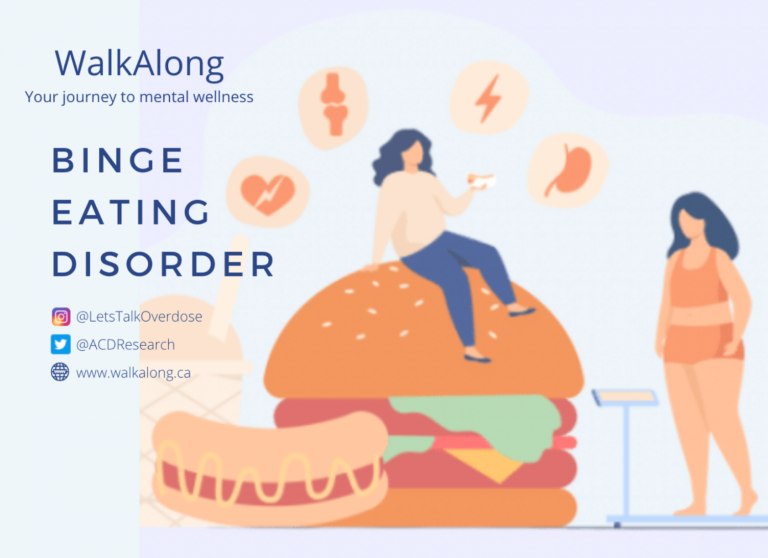Binge Eating Disorder (BED)
Binge Eating Disorder (BED)
What Is Binge-Eating Disorder?
Most of us have experienced eating much more than usual when we are stressed or bored. We might have even resented or felt guilty after eating a hefty meal. Compulsive overeating happens to all of us. However, if these behaviours are persistent, they could be symptoms of a disorder called binge-eating that approximately affects 2% of Canadians.
What Are Some of the Symptoms?
· Frequent episodes of overeating until feeling uncomfortably full
· Embarrassed and uncomfortable having food when others are around
· Eating much faster than the norm
· Feeling guilty and disgusted after eating
· Symptoms worsened by emotional stress, anxiety, low mood or boredom
· These events should happen at least once a week for at least three months before being considered a disorder
What Are the Risk Factors?
It can stem from various genetic, environmental and social factors. A few are:
· Childhood obesity
· Perfectionism
· Substance abuse
· Conflicts in the family
· Psychiatric problems in parents
· Depression
· Hypothyroidism
How to Diagnose?
First of all, it is important to not self-diagnose and see your healthcare provider so they can evaluate your condition and also differentiate between different types of disorders. They may do a full psychiatric and medical evaluation (physical exam and lab tests like thyroid hormone, cholesterol) before reaching any conclusion. The reason is they want to find out if there is an underlying condition that leads you to binge-eating or if it is an isolated condition.
What Are Some of the Treatment Options?
If an underlying condition for binge-eating is found, the goal of the healthcare providers is to address those underlying conditions. As a result, you may start feeling better and the frequency or severity of binge-eating episodes may decrease. However, if there is no underlying condition and it is an isolated disorder, there are psychotherapy approaches like cognitive behavioural therapy (CBT) or dialectical behavioral therapy (DBT) that could help you regain control over your eating habits. Your healthcare provider may consider prescribing some medications as well to help you reduce the symptom. Lastly, can reflect and think about circumstances that trigger this behaviour in you and establish an action plan to prevent it. For example, putting tempting foods deep in the cupboard so you won’t see them often or being physically active helps to alleviate anxiety.


